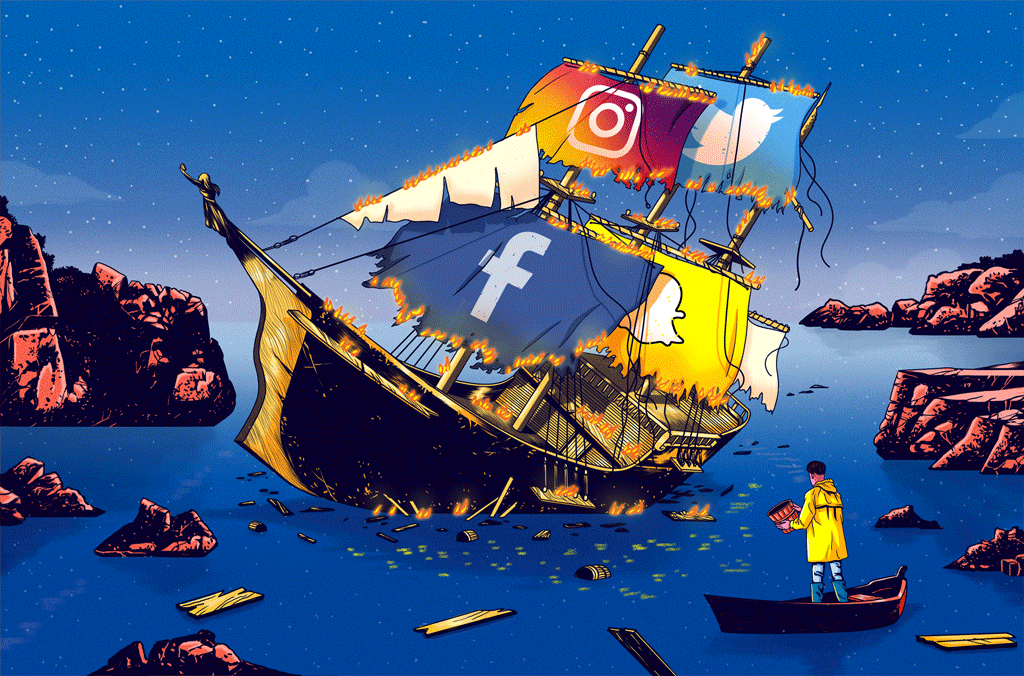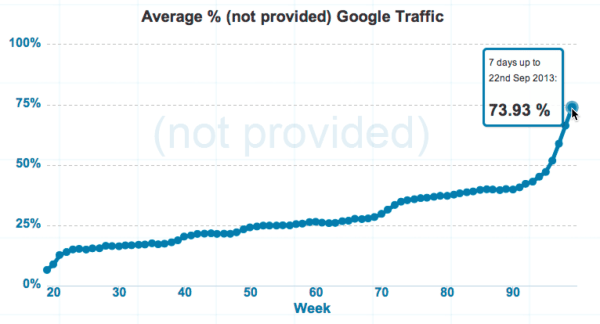If you’ve been watching the negative news surrounding Facebook, you are likely wondering how it is going to affect social and content marketers. It likely hasn’t come as a surprise to you, though.
Facebook’s algorithm change in December 2017 rocked the world of content marketers. Facebook’s change made it less likely that organic posts from businesses would make it into the news feeds of their fans. Pre-algorithm change, businesses could expect 15 to 30 percent of their page fans would see their organic posts. Post-algorithm change, that dropped to as low as 2 percent. This algorithm change has required content marketers to rethink the way they are distributing their content.
The sinking ship of social media
And then, in the last few weeks, the revelation of Cambridge Analytica’s misdeeds has come to light, showing that Facebook has made some significant errors in the way they safeguard information about platform users. Facebook is in the targets of Congress right now, but Google and Twitter have also been called to the carpet. Mark Zuckerberg and peers from Google and Twitter are expected to testify before Congressional committees on April 10th.
source: NYT
In his New York Times article, “Can Social Media Be Saved?“, Kevin Roose shares some insights on the plight social media faces. Those insights are valuable for any content marketers looking to distribute content via social media networks. In short, Roose identifies the problem Facebook (and Google and Twitter) faces: “Facebook can’t stop monetizing our personal data for the same reason that Starbucks can’t stop selling coffee – it’s the heart of the enterprise.”
What does this mean for social media marketers and content marketers?
While Facebook appears to be taking cannon fodder right now, I believe that they’re still in a fantastic place, for their shareholders at least. Facebook has deep pockets, experienced strategists, and, like any company of its size, has connections to numerous politicians.
Facebook is going to find a way to not only survive this Congressional oversite but to thrive through it all.
Do you remember when Google pulled out organic search keywords from Google Analytics? It has been years now, but it effectively made things less transparent for marketers, and more profitable for Google, as marketers have needed to turn more to paying for Adwords placements.
Google did it in part for privacy issues, though there were likely revenue-boosting goals from the change as well. In short, it hurt marketers’ ability to get insights the needs and interests of those coming to their websites.
Is not this the same thing Facebook is going to do with this situation? Are they not already doing it?
Things are changing for social media marketers and those responsible for creating and distributing content for businesses.
Three things that Facebook has already changed, and one that will:
- Fewer organic posts for businesses. As outlined earlier in this post, Facebook has already made changes to their algorithm that makes it so business posts will show up less frequently.
- Facebook Messenger chatbots shut down. Last week, Facebook made the announcement that they were temporarily shutting down their chatbot program for new participants. If you haven’t already heard how chatbots are revolutionizing marketing, you should read my earlier post on chatbots in marketing. Facebook’s announcement doesn’t specify when businesses will be able to start creating chatbots again, but it is widely speculated that when chatbots are turned back on they’ll have considerably more restrictions. Those restrictions will be good for consumers’ privacy rights, but bad for marketers. Perhaps they will help strike a good balance? Or, perhaps it’ll just drive more ad revenue for Facebook?
- Facebook being more restrictive with data. The Cambridge Analytica debacle showed Facebook that they need to have a tighter grasp on their privacy settings. For good reasons, they have already announced some sweeping changes that will make users data more private, but affect marketing’s ability to create intimate experiences through Facebook-enabled apps.
- Murkier ad targeting options. While Facebook hasn’t made any announcements yet concerning changes to their extremely targetable advertising platform, I believe it is only a matter of time. I can currently set up very relevant ads that target tight niches of an audience. For example, if I want to target mothers between the age of 26 and 34 that are thinking of buying a home, I can do that. Privacy advocates are likely going to make a noise about these targeting options being made available to marketers, and Facebook, in turn, will pull back on the targetability filters. That is going to hurt your ability, as a content marketer, to get content where it needs to go.
Can extra technology help save the value of social media marketing?
I believe extra technology, blockchain to be exact, can help preserve the art and science of social media marketing.
As Roose points out in his New York Times article, if a social media network were to be democratized and decentralized, where the actual users were the owners and decision-makers, and no central body had full control of the platform, then you may see fewer problems related to privacy.
What if this democratization of a social media network could be done in a graceful way, that would cut out the middleman in the advertising element, and instead, put the revenue from ads straight into the pockets of the actual users of the network?
I believe this is all possible and will happen in the coming few years. It will require a continued concern for privacy, a considerable shift in technology, and wider blockchain adoption.
In an interview last week with blockchain marketing expert Jeremy Epstein, CEO of Never Stop Marketing, we discussed the issues that were arising from Cambridge Analytica and how they could be alleviated by the adoption of blockchain technology by marketers. Earlier this year I wrote a post about how blockchain is already making inroads into marketing. That blog post and the current conundrum we are facing with social media marketing were discussed in my ClearVoice exclusive interview with Epstein.
Because these topics require a more extensive look, in next week’s #MartechMonday post I’ll have a full recap of the interview with Jeremy Epstein, and introduce three ways that blockchain technology could benefit the world of social media marketing and content distribution: added transparency, click-fraud free advertising, and easier identification and leveraging of influencers.





